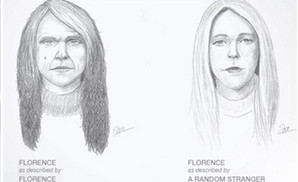Take a look in the mirror. What do you see?
Maybe you fixate on your flat nose, small eyes, or some other source of insecurity. Maybe you feel as if it’s all just “not right.” People of all ages–students, parents, even grandparents–struggle with their appearances. It is important, however, to understand that how you perceive yourself is not what others see. In fact, the glaring “faults” you may obsess over are probably not even perceptible to others.
According to Gia Salardi, an instructor at Miami International University, marketers intentionally prey on consumers’ emotions. For instance, many women are lured to products that promise a more youthful look because aging is a big concern for them. When many people look at themselves, they feel as if they do not measure up to standards set by media. According to data supplied by Dove, the Unilever-owned cosmetics company, only about 2% of the world’s women describe themselves as beautiful.
![In this Dove ad campaign, called “The Real Beauty Sketches,” a forensic sketch artist sketches a person’s face based first on a self-description and then upon descriptions from a stranger. According to the ads, the differences between the two portraits show that people are too critical of themselves. [Unilever Corporation]](http://www.jstudentboard.com/reporter/wp-content/uploads/2015/08/Appearances.jpg)
Priscilla Huh, a rising Junior, told JSR, “When you flip through magazines or watch TV, it’s inevitable to see models and celebrities with their perfect skin, body, and face. And people strive to look like them. Girls cake their face with makeup and spend hours thinking of what to wear, and to be honest, I’m guilty of doing the same thing.”
She added, “Trying to conform to these beauty standards is tough, and it can be stressful [when you are] constantly thinking of how others see you, and then trying to change yourself.”
Alison Kim, a student attending the Academy of the Holy Angels, said in an interview with JSR, “Everyone goes through times where they feel diffident about their outer appearances. I have suffered from it, and it has hindered me from really doing what I wanted. For instance, I hated the acne I had, so I denied the offer to be on TV [even though] I wanted to do it.”
“Honestly, I still don’t feel 100% confident,” Kim concluded, “but I choose to ignore it because I’ve realized that thinking negatively about myself is affecting me.”
How you think others perceive you should not hinder you from doing what you want. Be proud and believe in yourself — others see past whatever little thing that may bother you and it’s important to focus on what you love. If you do that, others will see it too.
Jeonghae Son, a senior citizen, told JSR, “After all these years, I’ve learned that in the end, it really doesn’t matter what’s on the outside. It’s important to look past that and I want everyone to know that they are beautiful the way they are and going through all these changes may just put themselves at harm. I’ve been through the pressure and I’ve been in your shoes – the number one lesson I know is that you have to love yourself.”
Today, there are many voices that advocate an embrace of inner beauty. Among these voices are brands that do so through advertisements. For example, Dove has advertised itself via the “Dove Campaign for Real Beauty” since 2004, producing commercials and print ads portraying women with a variety of body types and producing a series of shorts called “The Real Beauty Sketches” to show the differences between our perceptions of ourselves and reality.
Also, celebrities like Jennifer Lawrence, Amy Poehler, Rebel Wilson, and Tina Fey have all publically expressed the belief that women should embrace themselves for who they are. These women offer a refreshing change in the entertainment industry, countering other negative influences in the media. Successful actors and actresses advocating healthy body types are a good influence, and we need more of them.
There is no such thing as perfection, and appearance is only part of identity. People must not allow others to define them; instead, we must gain the confidence to define ourselves through who we are and what we do with our lives.

